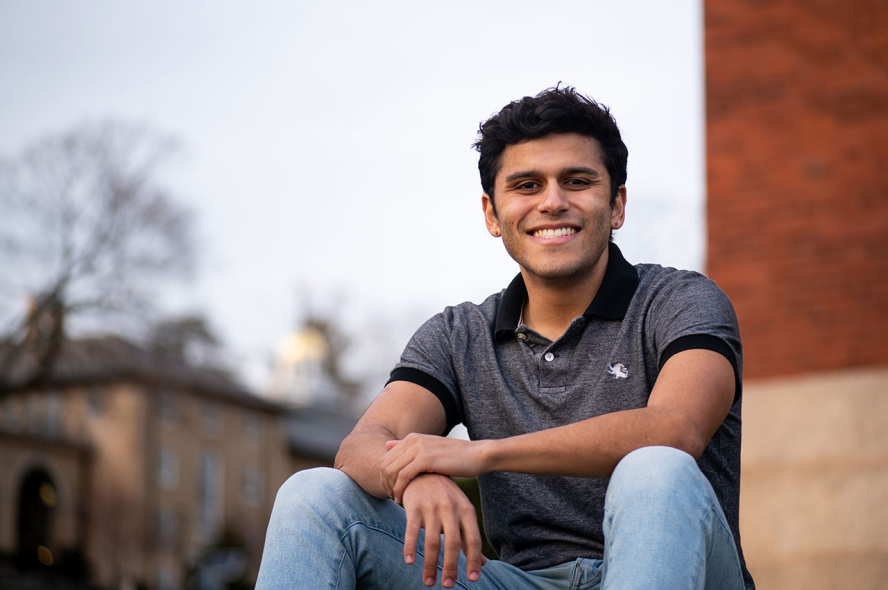Inspired to Engineer a Better Future: Alec McKendell

Optimism and curiosity are twin engines that drive the imagination of young engineers at Tufts, whose professors nurture skills, knowledge, and social awareness to help translate their visions into real-world applications. This year, as Engineers Week celebrates the theme of “Reimagining the Possible,” Tufts Now reached out to five School of Engineering undergraduates and graduate students who are bringing energy and big ideas to a changing world.
Alec McKendell, E22
For Alec McKendell, the appeal of biomedical engineering lies in its potential to develop groundbreaking new diagnostics and treatments for neurodegenerative diseases. His focus has led to research positions in three Tufts labs, including the Kaplan Lab and the Optical Diagnostics for Diseased and Engineered Tissue Lab, as well as summer research at UC Berkeley, and his current work at Massachusetts General Hospital, where he is part of a research group investigating the cause and prevention of Alzheimer’s. Additionally, using CRISPR-based gene editing, he designed a potential preventative medicine/treatment for breast cancer. That technology, and his entrepreneurial drive, led him to co-found JEZA Genomics, a finalist last year in the Tufts Gordon Institute’s $100k New Ventures Competition.
Why biomedical engineering: I lost my grandfather to Alzheimer’s, and he inspired me to explore the potential of biomedical engineering. I was in high school, and I wanted to find a cure. As a Tufts freshman I had very little experience, but I was still like: I want to do this. My interest has evolved so I’m less focused on developing devices that interface with the body— like a microchip—and more focused on how you can use tools that already exist within the human body. What’s really fascinating is finding ways to work with the body, so you are not implanting a microchip, for example, but instead leveraging an existing, natural mechanism to fix or even improve the biology.
A big idea: The next generation of nanoscale biosensors is super exciting. One cutting edge tool that I’m working on now allows us to track particular proteins in the brain by making part of them fluorescent, what’s called a nanoscale biosensor. Biosensors report on molecular-level events that were previously undetectable. They give us a better understanding of how microscopic mechanisms work in live cells, something that used to require dead tissue and hours of processing to study. Right now, they are primarily used in research. I imagine the next generation of biosensors could have a more practical application, such as earlier and more accurate disease detection and diagnosis.
Why progress matters: It feels good to know that even if I'm making a small piece of the contribution, science is built off the backs of everyone who has worked before you. That small piece of knowledge that you help with or develop, eventually people are going to take it further, just as I have benefited from all the people before me. That makes me feel like I am following through with this bold claim, this bold promise I made when I was younger.
This excerpt is from "Inspired to Engineer a Better Future" by Laura Ferguson, Tufts Now.
Department:
Biomedical Engineering , Engineering Management, Innovation, and Entrepreneurship (Gordon Institute)